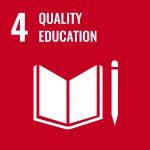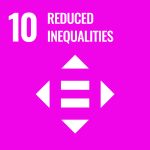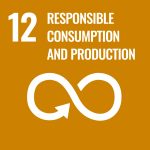Consumer Behaviour and the SDGs
In September 2015, all of the United Nations Member States adopted a “shared blueprint for peace and prosperity for people and the planet, now and into the future” (UNESCO, n.d.). The 17 Sustainable Development Goals (SDGs) are “an urgent call for action by all countries” – developed and developing – in a global partnership. They recognize that ending poverty must go hand-in-hand with strategies that build economic growth and address a range of social needs including education, health, equality and job opportunities, while tackling climate change and working to preserve our ocean and forests (UNESCO, n.d.).![Communications Materials, United Nations Sustainable Development (n.d.). United Nations. [SDG Poster and Icons] Retrieved from United Nation's Communications Materials webpage. Poster of UNESCO's Sustainable Development Goals.](https://kpu.pressbooks.pub/app/uploads/sites/9/2020/04/E_2018_SDG_Poster_without_UN_emblem_Letter-US-1024x791.png)
The 17 SDGs contain targets for building a better world for people & planet by 2030. Businesses, non-profits, NGO’s, and educational institutions have developed their own frameworks to address the SDGs and meet individual targets.
Consumer Behaviour and the SDG’s
In 2018, when I began to write and assemble this open textbook on Consumer Behaviour, I wanted to align it with the Sustainable Development Goals. The most obvious SDG that relates to the textbook is SDG #4 Quality Education.

SDG #4 aims to ensure that children and youth have access to free, equitable, and quality education around the world and that adults also have equal access to affordable higher education including university. One way we can make this possible is by removing barriers to learning, such as the cost of textbooks. “Open” textbooks are not only free (you didn’t have to pay to use this book for your class) but also free of copyright protection that limits the use of this book. By licensing this book as “CC-BY-NC-SA,” I have enabled other educators around the world to use the book, or whatever parts of it they like, and adapt it for their own purposes free of charge and permission (as long as they attribute me and the other sources of knowledge used in the book).
The other SDGs that were important for me to address in this book include: SDG #5 Gender Equality; SDG #10 Reduced Inequalities; and SDG #12 Sustainable Consumption and Production.



I address these goals by emphasizing the relationship between marketing and culture and how these both influence and inform one another. Marketing is a responsibility and if not handled with proper care, it can cause real harm. As cultural gatekeepers, marketers decide what products come to market, what movies get promoted, what advertisements get shown, and what stories get told. There is a marketer behind every ad that depicts a gender stereotype, a racist mascot, a culturally offensive message, or a throw-away disposable product.
Marketers are also responsible for cultural erasure by replacing historic and culturally accurate events with stories, narratives, and characters that comfort the dominant culture and uphold supremacy. Furthermore, when profits are prioritized over people and plant, marketers exacerbate societal inequalities and fuel consumer capitalism. Our happiness should not be defined by what we buy, which brands we wear, or how we spend our money.
Marketing’s contribution to the planet’s climate crisis can be measured throughout each stage of the product lifecycle and the consumer decision making process. All too often, marketers fail to design sustainability in production, consumption, and disposal leaving few options for consumers to reduce their carbon footprint. Worse still, misleading messages that only serve to greenwash and help companies evade responsibility, numb consumers and mask an ugly truth and reality.
I hope this book’s spotlight on the SDGs combined with the creativity, talent, and wisdom of marketing students today, will inspire a new generation of marketers to act responsibly and lead with honesty, transparency, respect, and meaningful action to support equity and equality.
Media Attributions
- The SDG poster and individual icons are from Communications Materials, United Nations Sustainable Development (n.d.). United Nations. [SDG Poster and Icons] https://www.un.org/sustainabledevelopment/news/communications-material/.
References
Sustainable Development Goals…Sustainable Development Knowledge Platform (n.d.). UNESCO. https://sustainabledevelopment.un.org/?menu=1300

